Pandas token of Chinese and foreign friendship
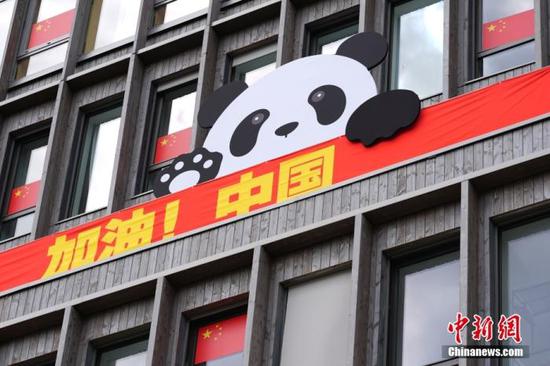
Team China residence at the Olympic Village in Paris (Photo: China News Service/Zhao Wenyu)
(ECNS)-- At the Olympic Village, giant pandas have been some of the most popular Chinese elements during the Paris 2024 Olympic Games.
On the wall of the Team China residence, a cuddly “panda” pokes its head out, seeming to say hello Olympic volunteers and staff also like pandas, scooping up many panda badges.
Loved by people worldwide, pandas have long been seen as the tokens of friendship between China and the rest of the world. With the friendship spreading worldwide, China’s popular panda representatives have also built ties with other nations in global sport events.
Yuan Zai, Huan Lili and Yuan Dudu: Witnessing Olympic torch relay
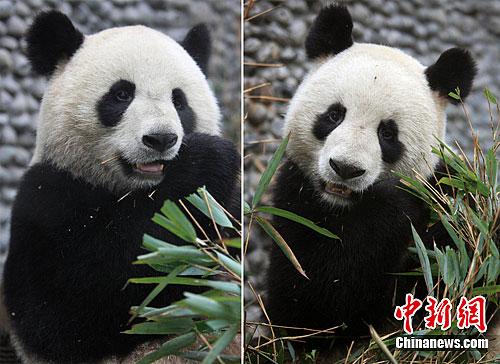
On July 8, when the Paris 2024 Olympic torch was carried to Beauval Zoo in Saint-Aignan, France, giant pandas Yuan Zai, Huan Lili and Yuan Dudu witnessed the historic moment as a token of the friendship between China and France.
The Sino-French relationship regarding giant pandas dates back more than a hundred years.
French naturalist Armand David was thought to first discover giant pandas in southwest China’s Sichuan Province in 1869, leading to the first giant panda fever in the western world.
In 2012, giant pandas Yuan Zai and Huan Huan arrived at Beauval Zoo, which opened a new chapter in Sino-French cooperation for giant panda conservation.
In 2021, Huan Huan and Yuan Zai gave birth to Huan Lili and Yuan Dudu. Their names symbolize the Sino-French friendship, with "Lili" taken from “Bali”, the Chinese pronunciation of Paris, and "Dudu" referring to its hometown of Chengdu.
Torchbearer Rodolphe Delord, general director of Beauval Zoo, said: “The Olympic flame symbolizes peace and friendship, and the pandas here symbolize the peace and friendship between China and France, especially in this special year, the 60th anniversary of the establishment of diplomatic relations between China and France.”
Si Hai, Jing Jing: 2022 Qatar World Cup stars
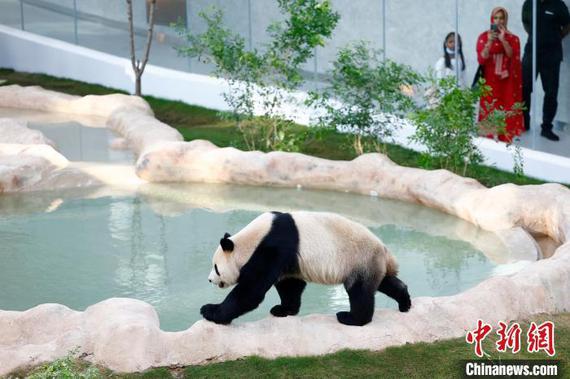
In October 2022, giant pandas Si Hai and Jing Jing took a special plane from China to Qatar, marking the first time giant pandas arrived in the Middle East.
To welcome their arrival, the Qatar government built the Panda House, equipped with rooms for nursing, treatment, food preparation, and security monitoring.
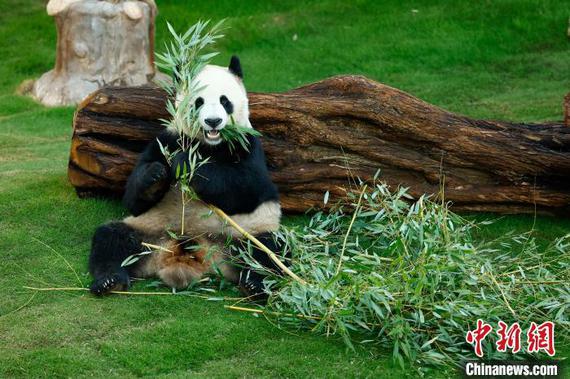
These two giant pandas brought the most unique Chinese elements to the Qatar World Cup, carrying the good wishes of the Chinese people for the World Cup as well as symbolizing the bilateral ties of friendship.
Ke Bi: Origin of “Olympic family”
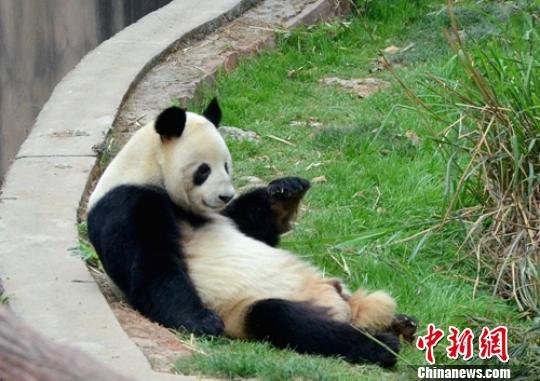
Giant panda Ke Bi was born on the same day as the opening ceremony of the 1992 Barcelona Olympic Games, and named after the mascot of the Games by Juan Antonio Samaranch, then-President of the International Olympic Committee (IOC).
Due to its relations with the Olympics, Ke Bi and its offspring earned the title "Olympic family".
In 2015 Ke Bi’s daughter Ke Lin gave birth to twin baby pandas, which were named Fuwa and Olympia by the President of IOC, Thomas Bach.
Fuwa, literally "good-luck dolls," was the mascot of the Beijing 2008 Olympic Games.
Bach said that these names symbolized the thriving and widespread development of the Olympic spirit in China.
Basi: Prototype for the 1990 Beijing Asian Games
Panda Basi, who has died, inspired the character of Pan Pan, mascot for the 1990 Beijing Asian Games.
In 1987, Basi was hosted in San Diego, the U.S. Its arrival spread the love for giant pandas across the U.S. West Coast, according to reports.
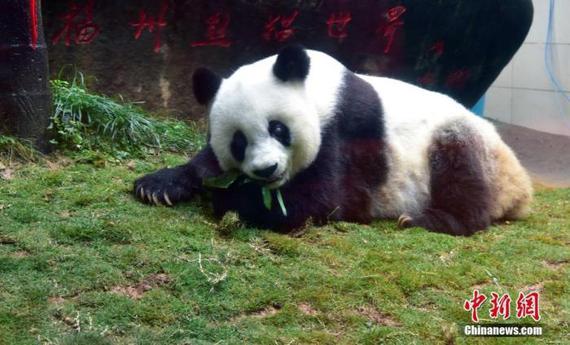
Incomplete statistics showed that more than 700 news media made over 20,000 reports on the life of Basi in the U.S. Though people had to stand in line for several kilometers and wait for five hours to see Basi for only three minutes, the public's enthusiasm did not wane.
In 1990, Pan Pan was modeled on the popular panda Basi, in keeping with the beautiful memory of the friendship between China and the U.S.

